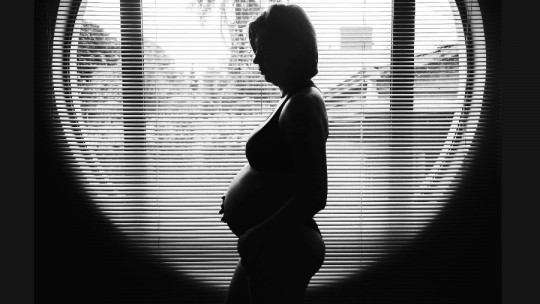
Motherhood is normally one of the most special and happy moments in the life of any couple, but sometimes all kinds of problems can occur in the process, both physically and psychologically.
These problems in motherhood have been ignored or hidden at a social level for many decades; However, they very intensely affect the lives and mental health of the parents they affect.
In today’s article we will focus on explaining what perinatal therapy is and When should we seek the services of a therapist specialized in perinatal psychology?.
What is perinatal therapy?
Perinatal therapy is the specialty of psychology that is responsible for study, prevent and intervene in any psychological alteration or emotional problem that may occur in the initial stages of motherhood and parenthood (conception, pregnancy, childbirth or upbringing of the first months).
In addition to providing professional psychological intervention, perinatal therapists offer support and follow-up for any problems or difficulties that couples who want to have a child may be going through.
On the other hand, they also offer a service of care, advice and provision of all kinds of information, knowledge, strategies and useful guidelines to both parents and their families.
In short, perinatal psychology aims to address any type of problem, alteration or imbalance in the mother, the couple or their family and also to assist them in everything they may need, in a scientific and professional manner.
When to request perinatal therapy services?
These are the main types of problems and needs addressed by perinatal therapy.
1. Postpartum depression
Postpartum depression is one of the main queries that couples and mothers who have recently given birth may have.
It is a psychological alteration characterized by a state of sadness, melancholy, crying or mood changes produced shortly after childbirth, which affects many women around the world and which must be treated by a specialized professional psychologist.
This depression can also occur during pregnancy and in any case it should be treated as a totally normal psychological health problem that can be treated perfectly.
2. Infertility problems
Another situation in which it is necessary to attend perinatal therapy occurs when suffering from the problem of infertility. This is one of the questions that perinatal psychology professionals usually deal with, both in women and in couples who want to conceive.
Both infertility and problems conceiving can be caused by psychological problems such as stress or anxiety and it is in these cases that a perinatal psychologist can offer their services to help the couple overcome their problems. On the other hand, when the reason for infertility is medical, this can damage self-esteem and generate an existential crisis by calling into question future plans for family life with children.
3. Problems with bonding with the baby
Since not all mothers have the same ease in establishing an emotional bond with the baby, sometimes the support of a perinatal psychology professional is also necessary to achieve this.
After childbirth, there can be many reasons why a mother cannot establish a normal bond with her baby or simply believes that she will not be able to do so. Professional psychological care will provide us with the knowledge and specific behavioral guidelines necessary to establish a natural bond with our child.
4. Psychological consequences of a miscarriage
The loss of a baby or abortions are very painful experiences in the life of any parent, which often must also be treated by qualified professionals who are experts in perinatal psychology. Many times it is a type of grief that is difficult to face precisely because a diffuse emotional connection is felt with the child who was not born as if his identity were blurred.
In these cases, the support and follow-up that couples receive from both their therapist and their friends and family is important.
5. Post-traumatic stress disorder after childbirth
The development of post-traumatic stress disorder can occur after the birth of a baby, especially if the birth has been accidental or the pregnancy has gone through many obstacles and unforeseen events.
Perinatal post-traumatic stress disorders can be treated in consultation, like any other similar disorder generated in another context.
6. Difficulties with breastfeeding
Breastfeeding difficulties can again have both physical and psychological origins that must be studied and analyzed in detail by the therapist.
Correct perinatal psychological therapy can help women who have recently become mothers overcome their breastfeeding problems.
7. Obsessive-compulsive disorder
Some obsessive-compulsive disorders can develop during pregnancy or after childbirth; Mother Initially obsessed with performing behaviors that he associates with a greater probability of the baby developing healthy and without problems, but this results in a series of repetitive routines that, if not done constantly, generate discomfort. These can very intensely affect the mental health of the mother who suffers from it.
8. Anxiety and fear of childbirth
Fear of childbirth is also common in mothers and fathers who are going to have their first child, as well as the development of other specific phobias related to motherhood.
Symptoms and disorders related to anxiety can also occur in a couple with perinatal problems as well as during pregnancy and after childbirth.
Anxiety usually affects new mothers who find themselves lost and not really knowing what to do at each stage of motherhood.
Perinatal psychological therapy is the best tool to help fathers and mothers overcome any type of fear that threatens them.








